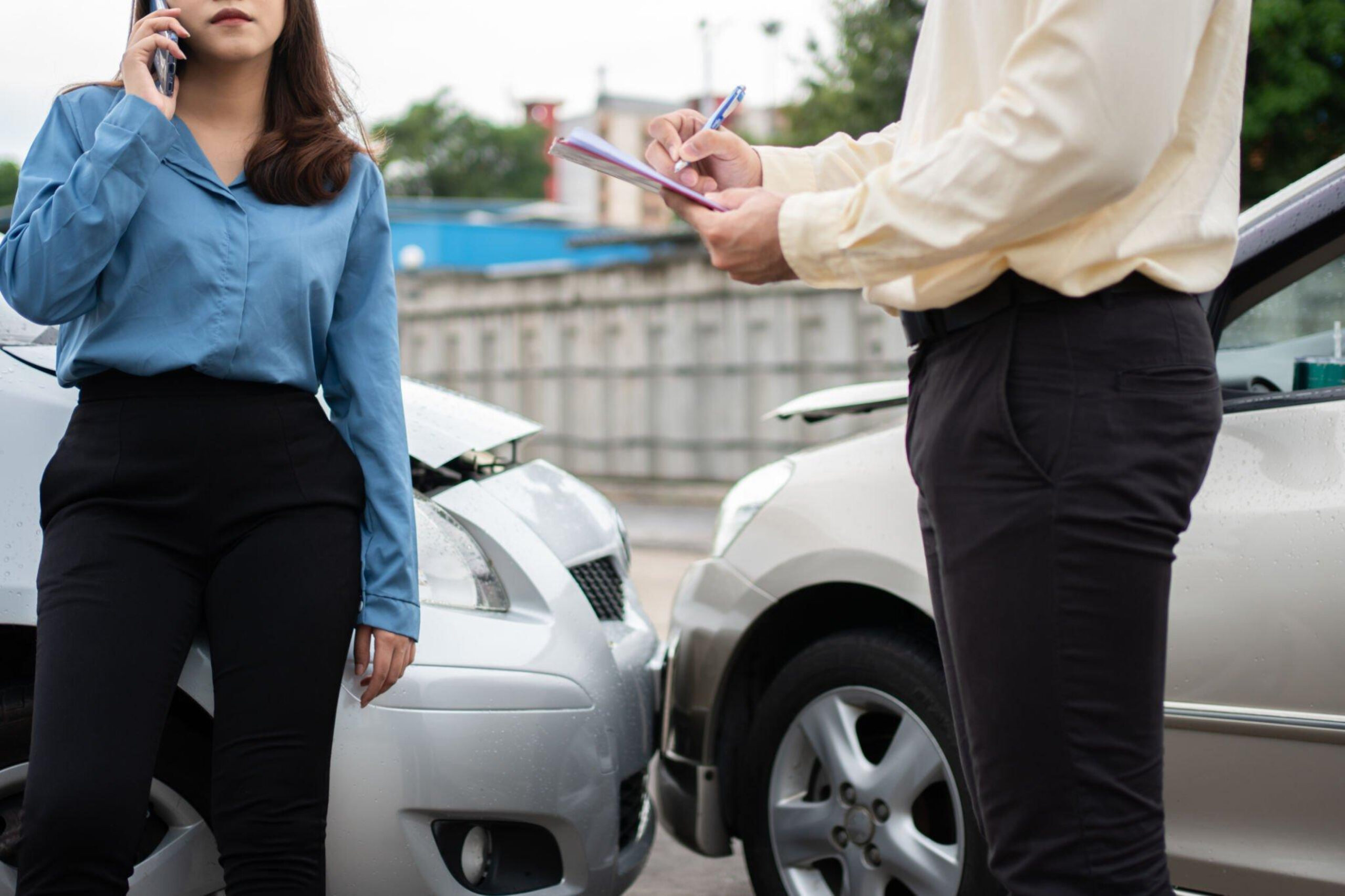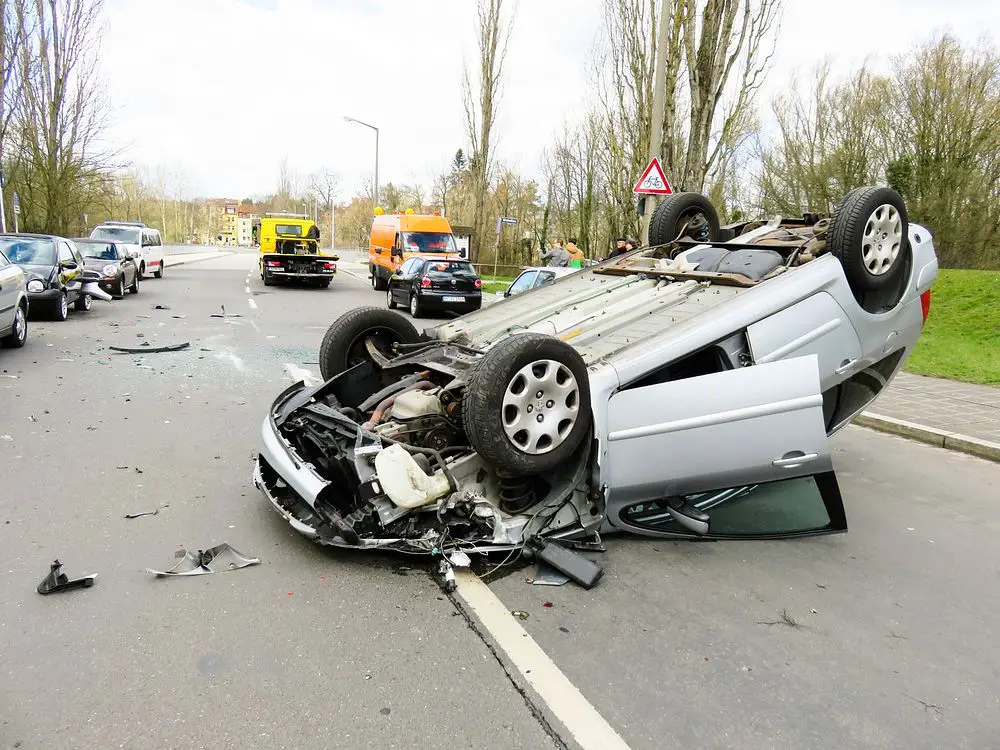If you crash a financed car, insurance typically covers the damages according to your policy terms. The amount payable depends on your coverage, deductibles, and the car’s value.
Understanding the implications of crashing a financed car is crucial for drivers. Most individuals opt for financing to spread the cost of vehicle ownership over time. Securing comprehensive and collision insurance is often a requirement by lenders to protect their investments.
In the event of an accident, your insurance steps in to cover the costs of repairing or replacing your vehicle, subject to the policy’s specifics. The key is to maintain insurance coverage that aligns with the vehicle’s value and your financial obligation.
Keeping abreast of your insurance details ensures you won’t face unexpected financial burdens after an accident, allowing both peace of mind and financial security as you navigate the roadways.

Credit: powerfinancetexas.com
The Basics Of Car Finance And Insurance
Navigating the world of car finance and insurance can be daunting, especially after an accident. Understanding your obligations when you have a financed car with insurance is crucial. This post will guide you through the essentials of car loans, lienholders, and the critical role insurance plays after a collision. Let’s explore: What happens if you crash a financed car with insurance?
Car Loans And Lienholders
When you finance a car, you agree to pay back the money borrowed to purchase the vehicle over time. The lender, often a bank or finance company, holds a lien on the car. This lien gives them a legal right to the vehicle until you pay off the loan in full.
A lienholder is part of your car’s title and they have a stake in the car’s condition. If an accident happens, lienholders expect the vehicle to be repaired or the loan to be repaid. In simple terms, they protect their investment.
Role Of Insurance In Auto Financing
Insurance steps up to protect you from financial loss after an accident. It’s not just a safety net; it’s a requirement by most lienholders.
- Collision coverage handles costs to fix or replace your car after an accident.
- Comprehensive coverage pays for damage due to theft, weather, or other non-collision events.
If you crash your financed car, the insurance company works with you and the lienholder. They check the damage and decide how to proceed. Insurance payouts go to repairing the car or to the lienholder if the car is a total loss.
Always keep your lender in the loop, maintain the required insurance coverage, and understand your policy. Ensure peace of mind while you navigate the aftermath of an accident with a financed and insured vehicle.

Credit: trybeem.com
Before The Dust Settles: Immediate Steps Post-collision
Imagine a moment’s lapse leads to the crunch of metal on metal. Your financed car now bears the scars of a collision. But, fear not, for insurance is your silent guardian in such times. As you gather your wits, certain immediate steps are critical to ensure safety and smooth insurance procedures. Let’s explore these critical post-collision actions.
Safety And Legal Obligations
First things first: safety is paramount. After a crash, switch off your vehicle’s engine and turn on the hazard lights. Check for injuries; if anyone is hurt, call emergency services immediately. Additionally, it’s legally required to share information with other parties involved. Exchange names, contact details, and insurance information. By law, in certain regions, you must also report the incident to the police if there are injuries or significant damage.
- Turn off the engine, switch on hazard lights
- Check for injuries; call emergency services if needed
- Exchange information with all parties
- Report to police if necessary
Documenting The Incident
With everyone safe and your legal duties fulfilled, it’s crucial to document the scene. Doing so aids your insurance claim processing. Take clear photos of all vehicles and the surrounding area. Capture details like license plates, street signs, and traffic signals. If there were witnesses, politely ask for their contact details. Write down the time, date, and weather conditions. This information serves as proof for your insurer and could help expedite your claim.
| Action | Importance |
|---|---|
| Take photos | Visual proof for insurer |
| Get witness details | Adds credibility to your claim |
| Note down specifics | Ensures accurate record of events |
The steps taken immediately after a collision are crucial in shaping the outcome of your insurance claim. These actions also ensure compliance with legal requirements and pave the way for the safety of all parties involved.
Navigating The Claim Process With Your Insurer
Accidents happen, and when they involve a financed car, things can get complicated. But don’t worry; insurance is there to ease the path. Understanding the claim process is crucial. Read on for a step-by-step guide on managing a car insurance claim with finesse.
Filing A Claim
First things first, contact your insurance company immediately after the accident. Here’s a quick list to guide you:
- Report the accident to the police, if necessary.
- Get your car insurance policy number ready.
- Gather evidence like photos or witnesses.
- Call your insurer’s hotline to start the claim.
Be honest with the details. It speeds up the process.
The Assessment And Repair Timeline
After filing the claim, an adjuster evaluates the damage. Here’s what happens:
- The insurance adjuster visits to assess the car.
- You receive an estimated repair time and cost.
- Repair starts once the claim is approved.
- Stay updated on repair progress.
Pick a trusted repair shop. Check for insurance-approved centers.
When The Car Is Totaled
Sometimes, the cost to repair is more than the car’s worth. This is what we call ‘totaled‘. If this happens:
- The insurer calculates the car’s actual cash value (ACV).
- They’ll offer a settlement based on this value.
- The payout goes towards settling your finance balance first.
If there’s a loan balance beyond the ACV, you might need GAP insurance.

Credit: pl-law.com
Financial Implications And Settlement
Crashing a financed car with insurance presents challenges. Here, we break down what this means for your wallet. Understanding financial implications and settlement processes is vital.
Dealing With Deductibles And Loan Balances
Your auto insurance policy likely comes with a deductible, an out-of-pocket expense before coverage kicks in. After an accident, you will pay this amount. What happens next depends on your car’s value and loan balance.
- If the car’s value exceeds the loan balance, insurance covers the repairs, minus the deductible.
- When damages surpass the car’s value, it’s a total loss. Insurance pays out up to the car’s current value.
If there’s a loan balance remaining, you’re responsible for it, even if the car is totaled.
Gap Insurance: A Safety Net
Gap insurance is your financial safety net for total losses. It covers the ‘gap’ between insurance payout and the unpaid loan. It’s a smart choice if you’re financing. Let’s look:
| Car’s Value | Loan Remaining | Insurance Payout | Gap Coverage |
|---|---|---|---|
| $15,000 | $20,000 | $15,000 | $5,000 |
You receive the total $20,000 needed to clear the loan with Gap Insurance.
Effect On Future Premiums
Expect an increase in future insurance premiums after a crash. Insurance providers adjust rates based on risk levels. Your claim history signifies a higher risk. This might lead to higher premiums. Safe driving after the incident helps keep costs down.
Frequently Asked Questions On What Happens If You Crash A Financed Car With Insurance
Will My Insurance Pay Off My Car Loan?
Your insurance may pay off your car loan if you have gap coverage and the car’s value is less than your loan balance after a total loss.
What Happens When Insurance Writes Off A Financed Car?
If an insurance company writes off a financed car, they’ll pay the vehicle’s current market value to the lender. Any remaining balance must be paid by the borrower.
How Does A Totaled Car Affect My Credit?
Having a totaled car itself does not directly affect your credit score. Insurance claims and resulting payments have no bearing on your credit. Only related financial issues, such as loan default due to the accident, could impact your credit.
What Happens If You Crash Into An Expensive Car?
Crashing into an expensive car can result in high repair costs. You’re likely to face significant insurance claims and possible legal action depending on fault. Always exchange information and document the accident scene.
Will Insurance Cover A Financed Car Crash?
Yes, if you have comprehensive or collision insurance, your insurer will typically cover a financed car crash after any deductibles are paid.
How Do I Claim Insurance For Financed Car Damage?
Contact your insurance provider immediately to report the accident and initiate the claim process, providing all necessary documentation and details.
Conclusion
Dealing with a financed car accident can be complex, but insurance provides a safety net. Always report the crash promptly and understand your policy details. Remember, maintaining comprehensive coverage is your safeguard against financial woes post-collision. Drive responsibly and stay informed for peace of mind on the road.

